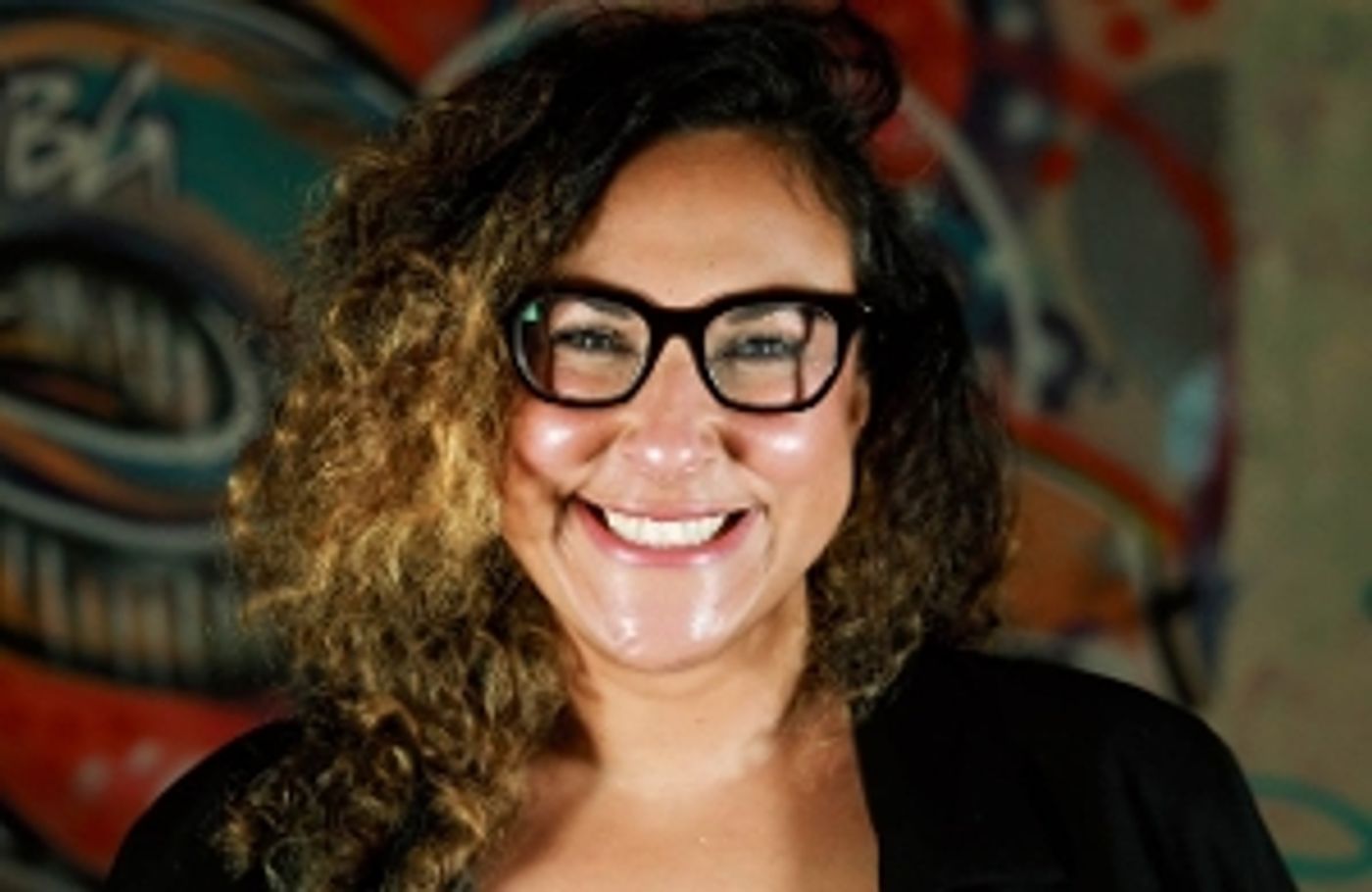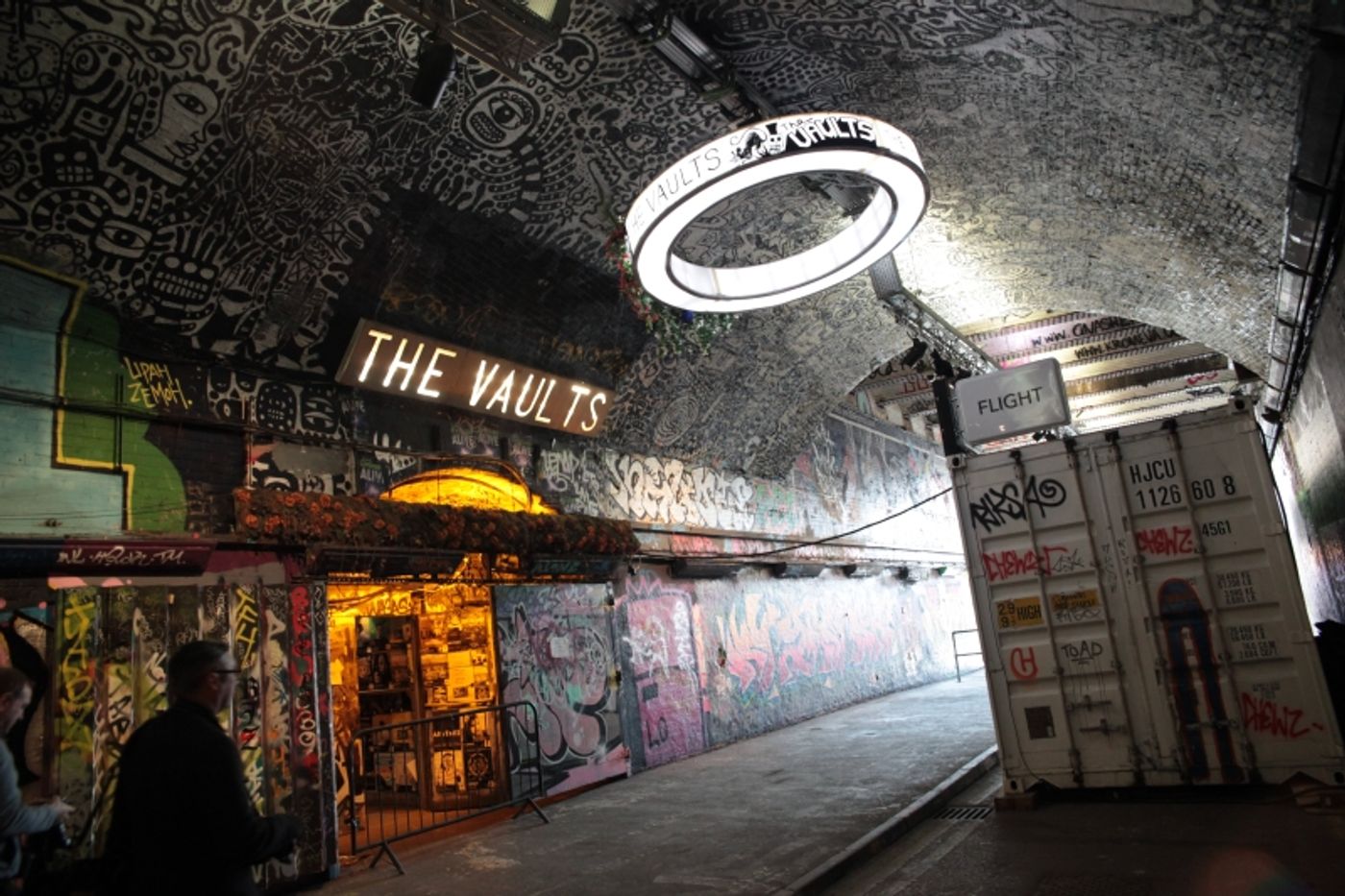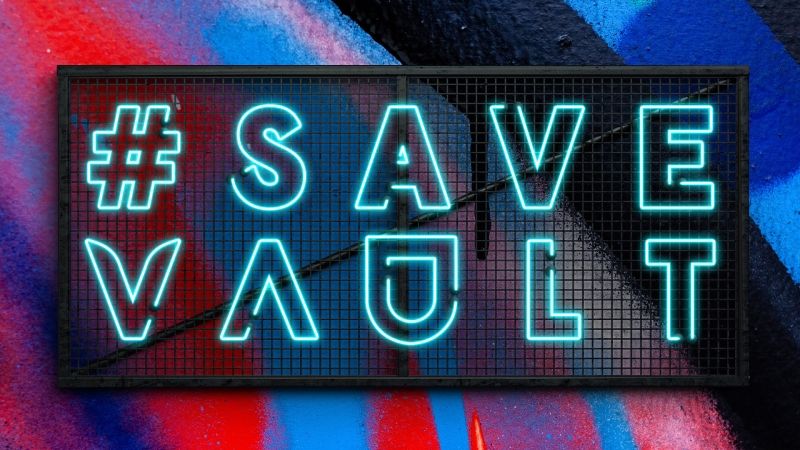Interview: 'It's Vital, There's Nothing Else Like It.' Bec Martin Discusses the Future of VAULT Festival
VAULT's Head of Programming speaks out after the Festival is forced out of its home

The past few months haven't been easy for the theatre industry. First, the Arts Council England cut funds to many established organisations, from The Donmar Warehouse to Hampstead Theatre and the newly reopened Gate Theatre. They suggested that the English National Opera should move north and develop a new business model, then changed their minds again. It's been a messy, disillusioning time for the arts. Another blow came last week when it was announced that VAULT Festival had to find a new home once this edition closed.
Conceived in 2012 by the Heritage Arts Company, ithe festival has been housed in an underground venue just underneath Waterloo Station. The Vaults has since given the eight-week-long celebration of independent theatre, drag, and cabaret its iconic vibe. Many have found their footing, debuted their work, grown their audiences, and then developed careers in larger theatres and on-screen. VAULT Festival is vital for the artistic landscape and has developed into an alternative to the now mainstream and overpriced Edinburgh Festival Fringe.
BroadwayWorld spoke to Bec Martin, Head of Programming at VAULT, about giving the under-represented a platform, how the festival is essential for emerging creatives and what the plans are for the future, now that it has to find a new home.
How has VAULT Festival changed since you started in 2019? Especially post-pandemic?
Hugely so, in lots and lots of different ways. Some of those changes are organic and have come out of the wider Cultural Industry; some of those changes we've implemented ourselves and have been strategic interventions. When I first started, one of my big aims was to improve the representation of underrepresented groups in fringe theatre. I wanted to provide them with a platform and that was my first step.
The 2019 festival, which is the one before I came in, was 12.3% Global Majority-led, this year it's 33.2%. That's an enormous change and it's far higher than the wider industry average. That's also not necessarily an organic change, it required a lot of outreach and intervention. This year the Festival is 71% female-led, 62% queer-led, 36% disabled or learning difficulty-led, and 51% working class. Those are statistics that we're really proud of. We've worked really hard to shift that dynamic from when I started.
There are also changes that come more organically. Post-pandemic, the work has been more avant-garde and riskier. People are trying new things, but it's definitely on a smaller scale in terms of financial investment, which is completely understandable. Before the pandemic, we were doing a lot more large-cast shows or shows with larger teams. This year there's much less of that. There are loads of one-person shows, which of course have always been on, but more so this year. Lots more two-handers, lots more smaller-scale work. That doesn't mean the work is less risky or less groundbreaking in content or form, but it's not so in terms of the size of the teams.
That's something that I'd like to see us being able to support, I'd love to put on more large-scale work. Emerging theatre-makers are always shoehorned into making one-or-two-person shows, so they're often not stretching their artistic muscles to their fullest potential because of those constraints. In terms of the content of the work, this year there's a lot about joy and outer space, interestingly. I wonder if it has anything to do with the world being on fire and our need for an escape or looking outside the box. What I saw pre-pandemic was a lot of very gritty and very "we're going to face the problem head-on". There's a lot of silliness and fun right now, a lot of celebration among the important issues. There's a lot of queer joy, black joy, and disabled joy. I think it's an artistic reflection of what we've been through in the past years.
How many submissions do you usually get? And how do you decide what to program?
We receive approximately 1500 submissions across all genres. This year we've programmed around 550 shows, but they don't all come from submissions. I would say 90% of the theatre shows come from submissions and 10% come from outreach or partnerships. Of the comedy shows, probably 20 to 30% come from submissions, the rest is through working with agents, new comedy promoters, and things like that. The Lates come primarily from direct approach and outreach. There are about 400 slots, so one-in-three or one-in-four shows make it.
Do you see VAULT as a vital part of the artistic landscape?
It is vital, fantastically so. It's why I chose to work there and why I program what I program. The pandemic has proved more than anything the scale of the dearth of opportunities there is without VAULT Festival. Although there are venue-based work-in-progress slots for emerging artists, it's an opportunity to do a full-week run at a place where industry people will come to see your work and reviewers will come and review it. No disrespect to smaller venues and pub theatres, obviously, but it's hard if you're making your first show out of drama school to go down to The Golden Goose, or The White Bear, or The Cockpit, you probably won't make a profit and won't get any reviewers in.
I love pub theatre and I go see shows all the time to take them to VAULT Festival, but there's a huge difference. There's nothing like it. The closest thing we have is Edinburgh, but VAULT is a hub. Artists can network with each other and expand their knowledge of form as well as meet their peers all in the same place. Other festivals like Camden Fringe, which I love, don't have that central hub. They don't allow for that exchange. That's why it's vital, there's nothing else like it.
Did you have any idea that The Vaults were going to force you out?
We'd been in discussions for a little while and we'd heard rumblings about it, but the venue was very cagey. "This might happen, this might not happen, we don't know, we can't give you a firm answer." In the last couple of weeks that we said, look, it takes us a long time to plan the festival, we need to know. They said, "Well, no, then", because they're pursuing "more commercial work".
VAULT is very well attended; I remember being in shows in previous years where I was the only audience member. I haven't been in anything that wasn't less than a full house this year.
It's growing year by year. We do a lot of work, but then artists do too, to market it. The pool of people who know about it expands each year and more of them come back. We're expecting 85,000 audience members this year, which is more than we've ever had. Its identity is so attached to the venue, it's really sad. At the same time, it's a good opportunity to reimagine and reevaluate.
I love The Vaults but there are a lot of things that make it a difficult venue. It's damp and wet. It can be inaccessible and difficult to navigate. Lots of that makes VAULT so magical, but there are many obstacles to it too. We are looking at this as an opportunity to rethink what we need in a space for it to be as welcoming, accessible, and financially viable for artists as we possibly can.
 The vibe of The Vaults will be hard to replicate, but what are you looking for in a venue?
The vibe of The Vaults will be hard to replicate, but what are you looking for in a venue?
That's such a complicated question and I've been trying not to think about it. We're trying not to close ourselves off from opportunities because we have a specific idea in mind. If I were to answer that question honestly, I'd say that I want it to be underground-y, grungy, and vibey. I'd like it to be rough around the edges. It would need seven-to-ten spaces of varying sizes from 50 to 150 seats or the scope to accommodate that if we were to put them in ourselves. I'd love to have the ability to accommodate immersive and promenade work, thrust and end-on stages with movable seats too.
I'd want it to have the option to put a bar in. Those are all things that The Vaults has, but there are some features that we don't have at the moment, like quieter places. There's no green room for artists or anywhere for audiences to escape from the melee of it all. Neurodiverse audiences don't have the chance to remove themselves from overstimulation. I'd love to be able to provide that kind of accessibility. And I'd love the toilets to be better and cleaner! There isn't a place that includes all of those elements as far as I know, and that's why we're trying to keep our minds open as much as possible so that we can build our ideal framework from the ground up.
As of right now, where do we stand with VAULT? What's the next step to make sure you go on next year?
It's very unlikely that we'll have a permanent home by 2024. The timeline is too short to find a venue, design it, build it, and then give artists enough time to apply, seek funding, and then program the Festival and promote it by January next year. What we're hoping will happen - and I don't see any reason why it won't happen, given the swell support we're receiving from the industry - is that we do something in the interim in 2024. Maybe a building takeover, potentially smaller, but running as long.
We could commission or co-produce. We could imagine a world that bridges the gap between the past of VAULT Festival and its future. It could be a combination of artists who have gone on to do great things, we could match them with emerging companies to re-envision how the fringe works. It would be a lovely springboard that would speak of our mission and values whilst we find a permanent home.
 You have set up a #SaveVAULT fundraiser to raise £150k by 19th March. Why does it end on that date?
You have set up a #SaveVAULT fundraiser to raise £150k by 19th March. Why does it end on that date?
That's when the festival ends, it's to give ourselves a sense of urgency. Whether or not we get there by the 19th of March - which I really hope - we're not shutting down. If we don't reach the goal by then it won't all be lost, but getting there would provide us with a cushion, the certainty that we can spend the next year finding a space and that the organisation will survive. If we don't get there by the 19th of March, it puts us in a perilous position.
What can audiences do to help?
I do appreciate that we're in a cost of living crisis, a climate crisis, and we're in the 12th year of a Tory government, so donating might not be possible for everyone. If you can't donate, come down to the festival. The best way you can support us at the moment is to come to The Vaults and see some incredible, weird, emerging work from the people you're going to see on the stages of The National Theatre, the RSC, the Almeida, and the Royal Court. They're who you're going to see next.
Come down, buy a drink, and support us that way. But also just come celebrate what's going to be our last time at The Vaults. Come down and party!
You can donate to the #SaveVAULT fund here or you can book to see a show at VAULT Festival here.
Videos

